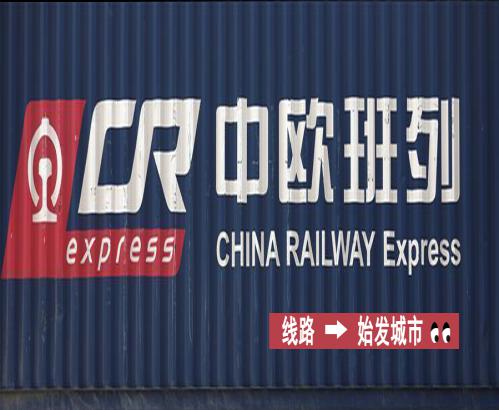EU launches legal challenge to UK suspension of GB-NI goods checks
The European Commission (EC) has launched a legal challenge against the UK’s suspension of checks on goods arriving in Northern Ireland (NI) from Great Britain (GB), claiming the decision breaches parts of the Withdrawal Agreement governing the UK’s departure from the EU and its trading rules.
Brussels yesterday sent a letter of formal notice to the United Kingdom “for breaching the substantive provisions of the Protocol on Ireland and Northern Ireland, as well as the good faith obligation under the Withdrawal Agreement”. This marks the beginning of a formal infringement process against the United Kingdom – “the second time in the space of six months that the UK government is set to breach international law”, the EC said.
The move follows the decision earlier this month by the UK government to extend certain grace periods relating to border checks between NI and GB on some agri-food goods – also known as sanitary and phytosanitary (SPS) goods – which were set to expire after 31 March 2021.
Widespread GB-NI goods disruption
That followed widespread disruption reported by food retailers and freight and logistics operators of certain freight movements since the start of 2021 following the withdrawal of GB from the EU’s single market and customs union rules, creating a trading border with its fellow UK region, with food products, parcels and groupage movements particularly affected. That had led to an initial temporary short-term suspension of elements of the new trade arrangements.
The decision by the UK to suspend some checks on goods was welcomed by freight body Logistics UK, which said extending the current grace periods for the movement of SPS goods from Great Britain to Northern Ireland “is vital to protect supply chains. We are pleased the (UK) government listened to the advice we shared with Michael Gove MP and European Commission vice president Maroš Šefčovič at a recent roundtable meeting”.
Logistics UK’s policy manager for Northern Ireland, Seamus Leheny, said the UK decision “will ensure logistics businesses in the agri-food sector will not face significant administrative burden come 1 April 2021 and will allow time to plan and deliver a permanent scheme that will reduce friction on SPS goods, such as a Trusted Trader Scheme. And, with this being unilateral action, Logistics UK is urging the UK and EU to work together on a solution that protects NI’s supply chains in the long-term.”
Critics say the decision by the UK reflects a failure by the UK government to fully understand or acknowledge the implications for freight movements of its decision to withdraw the UK from the EU single market and customs union as part of its withdrawal from the EU, which led inevitably to the need for the implementation of an administrative border either between Northern Ireland and the Republic of Ireland, or between Northern Ireland and Great Britain, which the UK government was repeatedly warned about. By signing up to the withdrawal agreement and the Northern Ireland protocol, UK effectively agree to that administrative border being between GB and NI, although the UK government has repeatedly denied that there is such a border – despite the apparent absurdity of such a claim.
But since the UK’s departure from EU rules from one January, the Westminster government has come under pressure from union ists within Northern Ireland that are strongly opposed to any separation between Northern Ireland and the rest of the UK and have called for the suspension of the protocol, something that the UK has now partially acquiesced to.
Breach of UK’s obligations
However, the EU sees the decision as a breach of the UK’s obligations. Vice-President Maroš Šefčovič, the EU’s co-chair of the UK-EU Joint Committee, said: “The Protocol on Ireland and Northern Ireland is the only way to protect the Good Friday (Belfast) Agreement and to preserve peace and stability, while avoiding a hard border on the island of Ireland and maintaining the integrity of the EU single market.
“The EU and the UK agreed the Protocol together. We are also bound to implement it together. Unilateral decisions and international law violations by the UK defeat its very purpose and undermine trust between us.
“The UK must properly implement it if we are to achieve our objectives. That is why we are launching legal action today. I do hope that through the collaborative, pragmatic and constructive spirit that has prevailed in our work so far on implementing the Withdrawal Agreement, we can solve these issues in the Joint Committee without recourse to further legal means.”
Next steps
The UK has been given one month to “submit its observations to the letter of formal notice”. After examining these observations, or if no observations have been submitted, “the Commission may, if appropriate, decide to issue a Reasoned Opinion. Under Article 12(4) of the Protocol, the Court of Justice of the European union has full powers provided for under the Treaties, including the possibility to impose a lump sum or penalty payment.”
Secondly, if the UK fails to enter into consultations in the Joint Committee in good faith, with the aim of reaching a mutually agreed solution by the end of this month, the EU may provide written notice to commence consultations under Article 169 of the Withdrawal Agreement, as a first step in the Dispute Settlement Mechanism process set out in Title III of Part Six of the Withdrawal Agreement.
If no solution is found, the EU could refer the dispute to binding arbitration. This may ultimately also result in the imposition of financial sanctions by the arbitration panel. In case of non-payment or persisting non-compliance, the EU could suspend its obligations under the Withdrawal Agreement (with the exception of the citizens' rights part of the agreement) or from the Trade and Cooperation Agreement, in accordance with Article INST.24(4), e.g. by imposing tariffs on imports of goods from the UK.
Background
On 3 March 2021, the UK Government stated its intention to unilaterally delay the full application of the Protocol on Ireland and Northern Ireland concerning the movement of goods and pet travel from Great Britain to Northern Ireland. This followed the Joint Committee meeting on 24 February 2021, “where the UK committed publicly to the proper implementation of the Protocol, as well as the implementation of all decisions taken in the Joint Committee in December 2020”, the EC said.
“The UK resorted to this unilateral action without any discussion or consultation with the EU side in the bodies established by the Withdrawal Agreement. It constitutes a clear departure from the constructive approach that had prevailed up until this point, thereby undermining both the work of the Joint Committee and the mutual trust and spirit of cooperation that had been rebuilt in the final months of 2020, after the uncertainty created by the UK Internal Market Bill.”
The EU claimed it “has continuously engaged in good faith within the Joint Committee to find pragmatic solutions to help minimise disruption caused by Brexit and to help facilitate the everyday life of communities in Northern Ireland. The EU has consistently sought to bring all those concerned onto a clear trajectory to full compliance with the Protocol.
“This recent decision once again sets the UK on a path of a deliberate breach of its international legal obligations and the duty of good faith that should prevail in the application of international agreements pursuant to Article 26 of the Vienna Convention on the Law of Treaties.”
UK justification
UK Cabinet Office minister Lord Frost, who is leading the UK’s negotiation of Brexit-related matters, claimed earlier this month that the UK measures “were temporary technical steps, which largely continued measures already in place, to provide more time for businesses such as supermarkets and parcel operators to adapt to and implement the new requirements in the Protocol”.
A UK government statement said Frost “underlined that these were needed for operational reasons and were the minimum necessary steps to allow time for constructive discussions in the Joint Committee to continue without the prospect of disruption to the everyday life of people in Northern Ireland in the coming weeks”.
Frost noted that such operational measures “were well precedented in other international trade arrangements, and that they were entirely consistent with our intention to discharge our obligations under the Protocol in good faith”.
- Geodis buys US freight broker Velocity Transport
- Box cargo shifts to bulk vessels to find affordable capacity
- Maersk resumes Yantian calls as nearby ports remain under pressure
- New system launched for first- and last-mile cargo tracking for forwarders
- Egypt agrees to release Ever Given from Suez Canal
- Culina buys Eddie Stobart owner GreenWhiteStar
-
1
达飞轮船公告
WAX航线MAERSK ENSHI轮422W(0WWI5W1MA)航次开航及相关操作时间调整通知(UP3)...
-
2
达飞航运公告
2月28日,达飞官网发布关于红海运营的最新公告,达飞集团已经重新评估了红海南部地区...
-
3
达飞轮船公告
PHEX航线CMA CGM LOIRE轮0BEI7W(0BEI7W1MA)航次开航及相关操作时间调整通知...
-
4
美森轮船:美森乐琳 美森瓦胡长...
尊敬的客户,
-
5
马士基航运公告
关于第 23 周 417 船舶相关截止时间的通知
-
6
涨价!船公司发布运费调整通知!...
近日,赫伯罗特官网发布公告,将提高远东和欧洲之间的FAK费率和征收从亚洲/大洋洲到非...
-
7
达飞轮船公告
ANL-FAL3 航线 CMA CGM TROCADERO 轮 0FMFVW(0FMFVW1NL)航次开航及相关操作时间调整...
-
8
达飞轮船公告
BBX2航线CNC JAGUAR轮0HBB9S(0HBB9S1NC)航次开航及相关操作时间调整通知...
-
9
罢工危机解除!美东码头谈判达成...
据外媒最新消息,美国国际码头工人协会(ILA)和美国海事联盟(USMX)已成功谈判达成...
-
10
达飞轮船公告
BBX2航线CNC JAGUAR轮0HBB9S(0HBB9S1NC)航次开航及相关操作时间调整通知...

